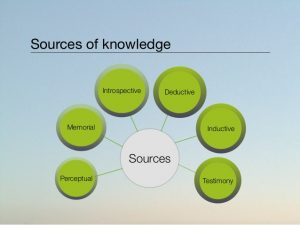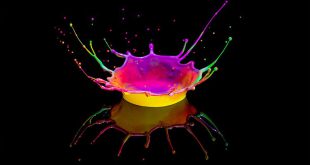Mời các bạn làm bài tập ôn luyện dạng bài Matching Information trong IELTS Reading. Bài tập này giúp các bạn ôn lại kỹ năng xử lý dạng bài Matching Information cũng như củng cố lượng từ vựng. Bài có tất cả 8 câu hỏi chọn đáp án đúng. Sau khi làm xong bài, các bạn hãy ấn submit để xem kết quả bài làm của mình và giải thích của từng câu hỏi. Bạn hãy thử làm để củng cố và nâng cao kiến thức để chuẩn bị cho bài thi IELTS Reading nhé!
Chúc bạn có thời gian hữu ích trên website!
Source of Knowledge

A What counts as knowledge? What do we mean when we say that we know some-thing? What is the status of different. kinds of knowledge? In order to explore those questions we are going to focus on one particular area of knowledge medicine.
B How do you know when you are ill? This may seem to be an absurd question. You know you are ill because you feel ill; your body tells you that you are ill. You may know that you feel pain or discomfort Iml knowing you are ill is a bit. more complex. At times, people experience the symptoms of illness, but in tact they are simply tired or over-worked or they may just have a hangover. At other limes, people may be suffering from a disease and fail to be aware of the illness until it has reached a late stage in its development. So how do we know we are ill, and what counts as knowledge?
C Think about this example. You feel unwell. You have a bad cough and always seem to be tired. Perhaps it could be stress at work, or maybe you should give up smoking. You tool worse. You visit the doctor who listens to your chest and heart, take’s your temperature and blood pressure, and then finally prescribes antibiotics lor your cough.
D Things do not improve but you struggle on thinking you should pull yourself together, perhaps things will ease off at work soon. A return visit to your doctor shocks you. This time the doctor, drawing on yours of training and experience, diagnoses pneumonia. This means that you will need bed rest and a consider able time off work. The scenario is transformed. Although you still have the same symptoms, you no longer think that these are caused by pressure at work. You now have proof that you are ill. This is the result of the combination of your own subjective experience and the diagnosis of someone who has the stains of a medical expert. You have a medically authenticated diagnosis and it appears that you are seriously ill; you know you are ill and have evidence upon which to base this knowledge.
E This scenario shows many different sources of knowledge. For example, you decide to consult the doctor in the first place because you feel unwell – this is personal knowledge about your own body. However, the doctor’s expert diagno-sis is based on experience and training, with sources of knowledge as diverse as other experts, laboratory reports, medical textbooks and yours of experience.
F One source of knowledge is the experience of our own bodies; the personal knowledge we have of change’s that might be significant, as well as the subjec-tive experience of poin and physical distress. These experiences are mediated by other forms of knowledge such as the words we have available to describe our experience and the common sense of our families and friends as well as that drown from popular culture. Over the post decade, for example, Western culture has seen a significant emphasis on stress-related illness in the media. Refer-ence to being ‘stressed end’ has become a common response in daily exchanges in the workplace and has become port of popular common-sense knowledge. It is thus not surprising that we might seek such an explanation of physical symp-toms of discomfort.
G We might also rely on Ihe observations of others who know us. Comments from friends and family such as ‘you do look ill’ or ‘that’s a bad cough’ might be another source of knowledge. Complementary health practices, such as holistic medicine, produce their own sets of knowledge upon which we might also draw in deciding the nature and degree of our ill health and about possible treatments.
H Perhaps the most influential and authoritative source of knowledge is the medical knowledge provided by the general practitioner. We expect he doctor to hove access to expert knowledge. This is socially sanctioned. It would not be acceptable to notify our employer Unit we simply felt too unwell to turn up for work or that our faith healer, astrologer, therapist or even our priest thought it was not a good idea. We need on expert medical diagnosis in order to obtain the necessary certificate it we need to be off work for more than the statutory self-certificaion period. The knowledge of the medical sciences is privileged in this respect in contemporary Western culture. Medical practitioners are also seen as having the required expert knowledge that permits then legally to pre-scribe drugs and treatment to which patients would not. otherwise have access. However there is a rauge of different knowledge upon which we draw when making decisions about our own state of health.
I However, there is more than existing knowledge in this little story; new knowledge is constructed within it.Given the doctor’s medical training and background, she may hypothrsie ‘is this now pneumonia?’ and then proceed to look for eevidence about it. She will use observations and instruments to assess the evidence and-critically-interpret it in the light of her training and new experience both for you and for the doctor. This will then be added to the doctor’s medical knowledge and may help in future diagnosis of pneumonia.
Questions 1-8
Reading Passage 3 has nine paragraphs, A-I.
Which paragraph contains the following information?
Write the correct letter, A-I, in boxes 1-8 on your answer sheet.
NB You may use any letter more than once.
1 the contrast between the nature of personal judgment and the nature of doctor ’s diagnosis
2 a reference of culture about pressure
3 sick leave will not be permitted without professional diagnosis
4 how doctors’ opinions are regarded in the society
5 the illness of patients can become part of new knowledge
6 a description of knowledge drawn from non-specialised sources other than personal knowledge
7 an example of collective judgment from personal experience and professional doctor
8 a reference that some people do not realise they are ill
 IELTS Max Luyện thi IELTS cam kết đầu ra
IELTS Max Luyện thi IELTS cam kết đầu ra





